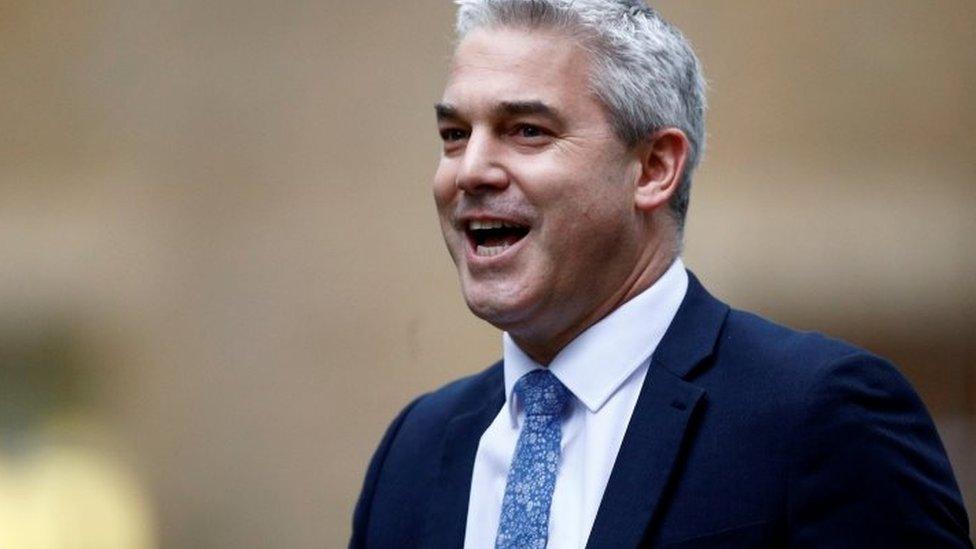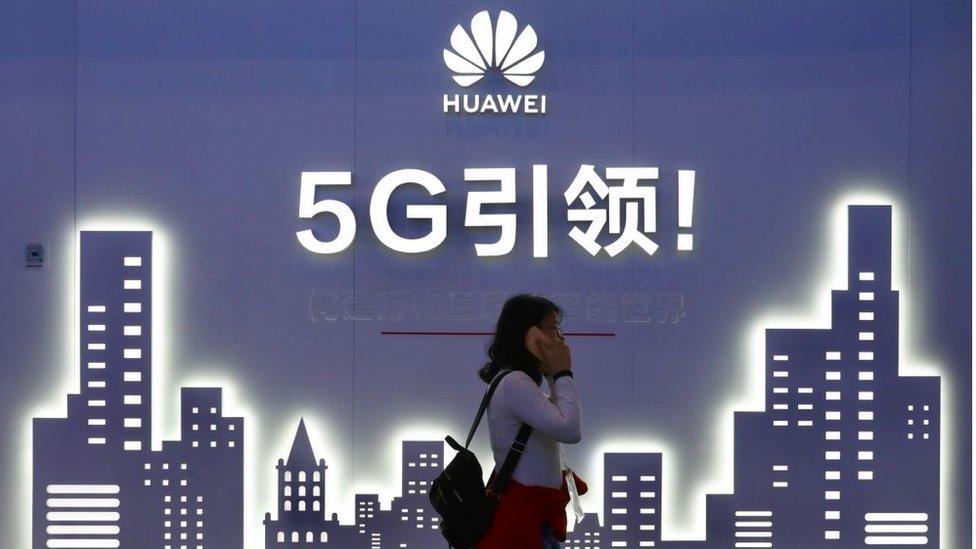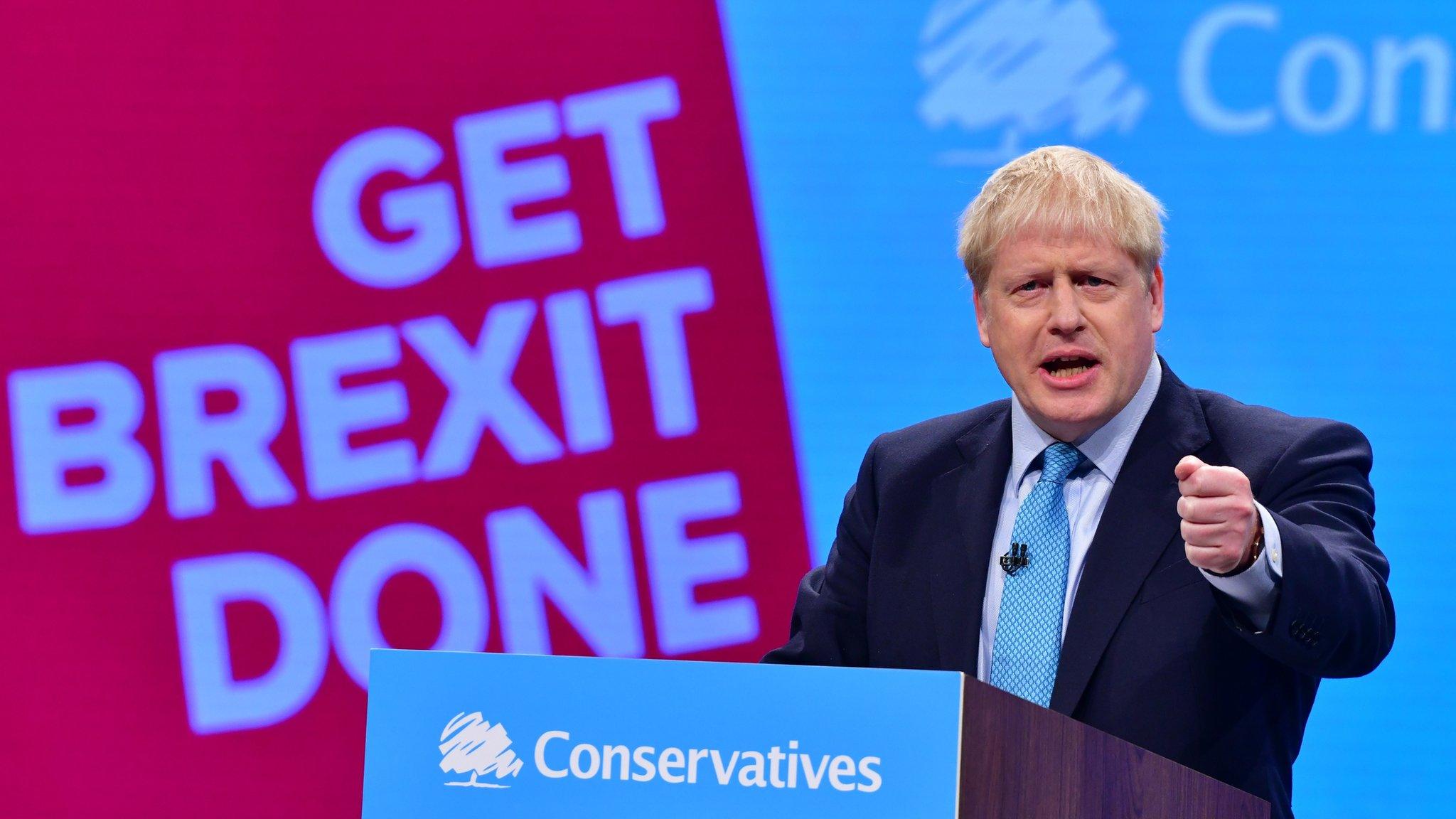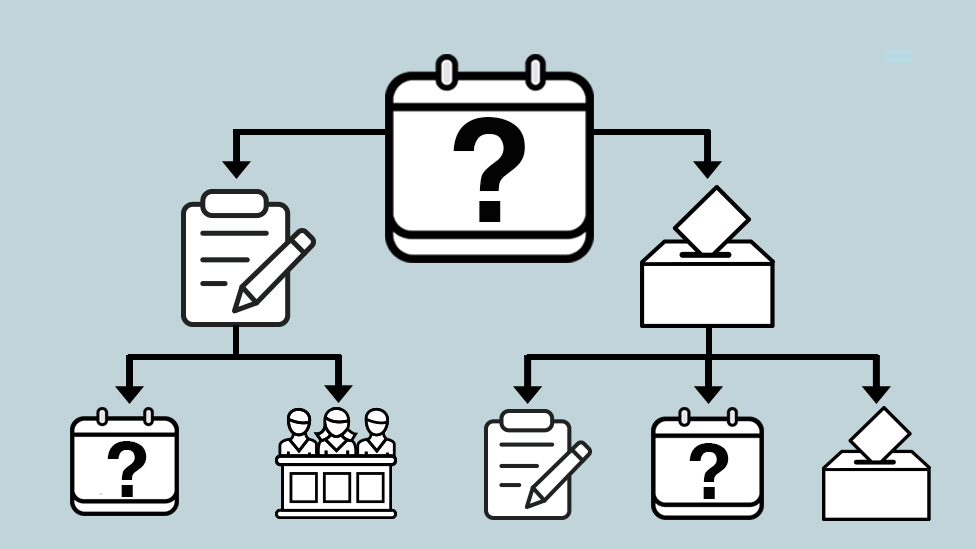Brexit sound bites and slogans will run out
- Published

At the risk of sounding like one of those people you hope won't sit next to you on the bus; you know the one?
The odd-looking character muttering away with tin foil wrapped round his head as a shield against government mind probes, here's a question: Has politics gone strangely quiet since the election? Or is that just what they want you to think?
Having spent some time talking to Brexit Secretary Stephen Barclay on my BBC Radio 5 Live Sunday programme, Pienaar's Politics, it seems pretty obvious both things are true.
While government ministers and those behind them in No 10 Downing Street seem keen to fend off awkward detailed questions about the UK's post-Brexit future - or at least offer mostly superficial slogans and sound bites in return - the reason may simply be that they don't know the answers. Not yet. And not for some time.
How, for example, in talks on the future relationship with the European Union, can ministers insist Britain will set and enforce its own rules and standards on such things as workers' rights and conditions, on environmental safeguards, on food safety and animal welfare, while the EU insists these rules should always conform and comply with its own?
True, the detailed talks have yet to formally begin. But something has to give, or there can be no comprehensive trade deal, this year or at all.
And if there is a compromise on these standards, how could the UK strike a deal with the US, where Congress - to say nothing of President Trump - will insist on deregulation and compromise in the opposite direction?
It's not that ministers are refusing to speak (after all, Stephen Barclay cheerfully faced every question me and my studio guests from the Sun on one side and the New Statesman on the other could think up), the problem is that every answer begged three more questions.
Brexit, despite the slogans, is very far from being "done".
The impression of there being a clear and easily deliverable plan for the UK's post-Brexit place in the world was, with the best will in the world, over-simplistic and more than a tad misleading.
Could it all work out for the best? This deeply divided country will never agree on the answer to that.
Unfortunately for the government, there must come a stage at which sound bites and slogans run out.
Only clear action and responses will do.
And that stage could begin to arrive in the coming days as the UK prepares to mark its exit from the European Union at 23:00 GMT on Friday.
Mr Barclay suggested to me, for example, that the cabinet would decide whether to allow the Chinese corporation Huawei to have a hand in building the 5G network in the light of British official advice, without undermining UK security needs, whether the White House liked it or not.
Or at least, that's what I thought he said.
On closer listening, he was simply treading water.

He said: "It's always been a question that the UK will control its own security approach.
"So we work very closely with the US as our number one allies.
"But ultimately it will be an evidence-based decision, informed by the advice of the relevant agencies within the UK.
"And this will need to be taken by the relevant cabinet committee in due course."
When I put to him reports the security advice to ministers suggested Huawei could be used with no threat to security, the Brexit secretary gently pointed out, quite correctly, that I had no idea what those reports may actually have said.
And nor, more interestingly, did he
"It is an issue for the National Security Council to take and they will be doing so in an evidence-based way, he said.
"The fundamental point is that there is a very clear political message from the top in the US, that they see a trade deal with UK as a top priority and the UK."
It was a textbook example of optimism, useful buck-passing and convenient (though believable) ignorance of what might be happening elsewhere and higher up in government.
Mr Barclay also told me there was "much more to do", and it was hard to argue with that. He added he would like to carry on in the cabinet after the coming ministerial reshuffle.
On the evidence of his opaque performance, don't write him off.
- Published6 November 2019

- Published13 July 2020

